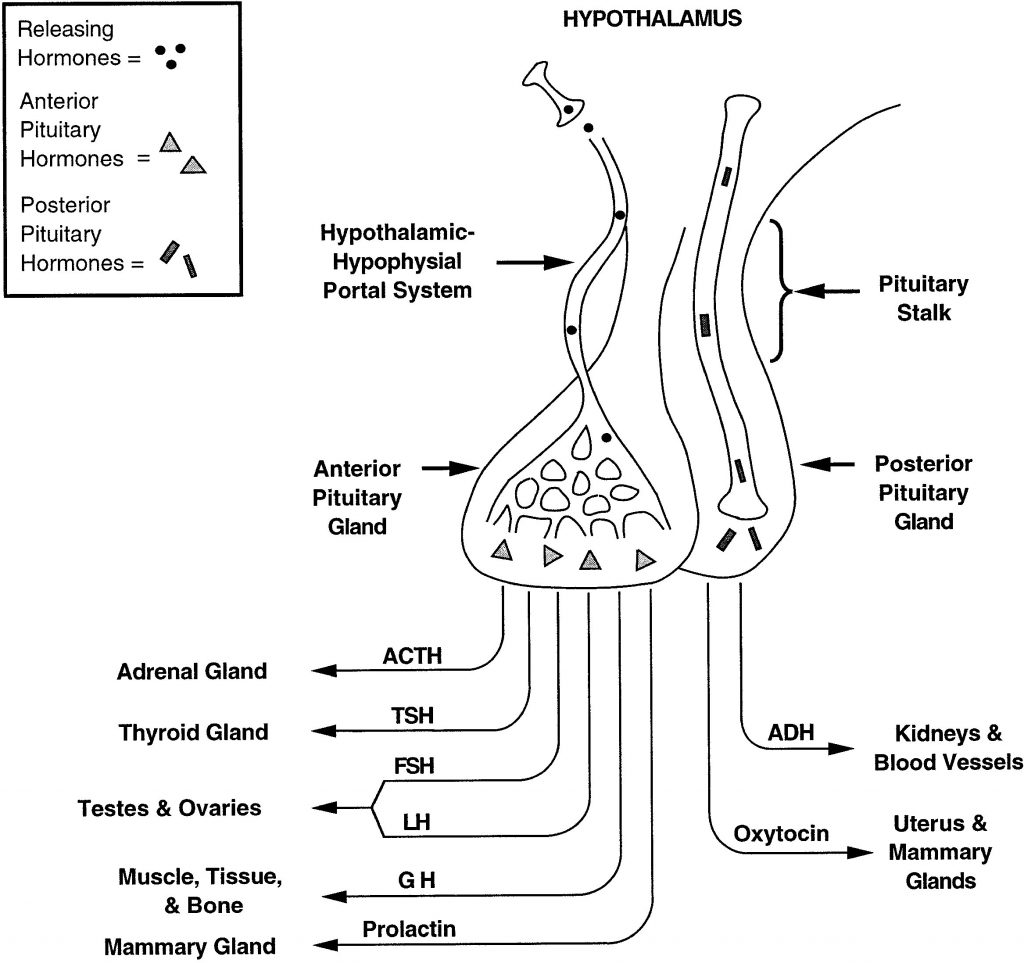Lab 4: Endocrine System

Abstract: The organs of the body communicate with each other through the nervous and endocrine systems to coordinate their activities. The nervous system uses neurotransmitters and neurons to convey information to and from the brain. In contrast, the endocrine system uses hormones, which are chemical messengers produced by specific tissues in the body, to transmit information. These hormones travel through the bloodstream to exert their effects on distant targets organs. In a similar manner, people communicate with each other by using telephones and the postal service. The body’s nervous system is comparable to the telephone system because it send fast, direct messages. The endocrine system is comparable to the postal service because the delivery of the message is slower. Like bulk mail, the message is more diffuse (reaches a greater area) and affects more than one person or organ. Although the hormone travels through the body via the blood, it can only affect those cells with receptors for that specific hormone. Hormones are a slower method of communication, but their effects last longer.
